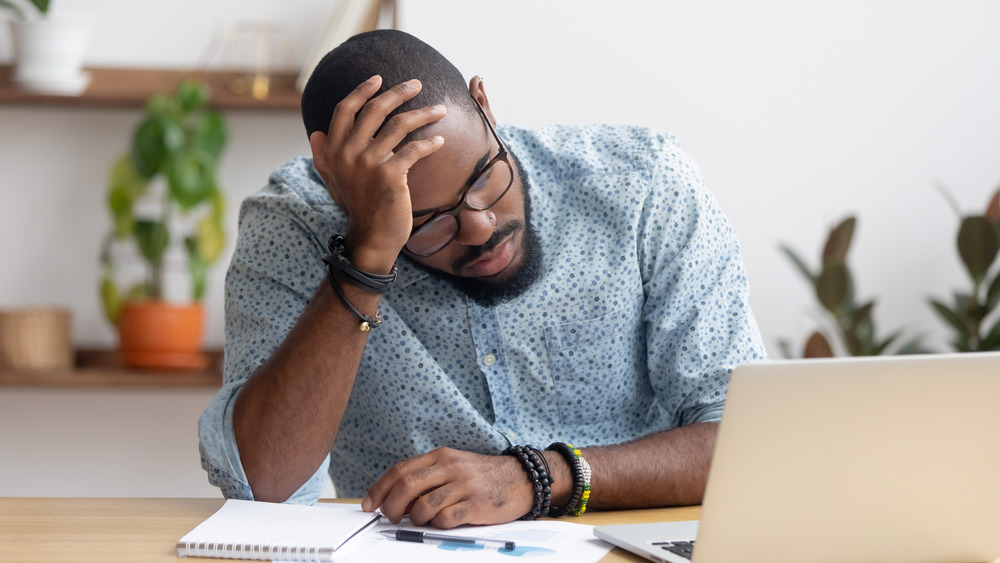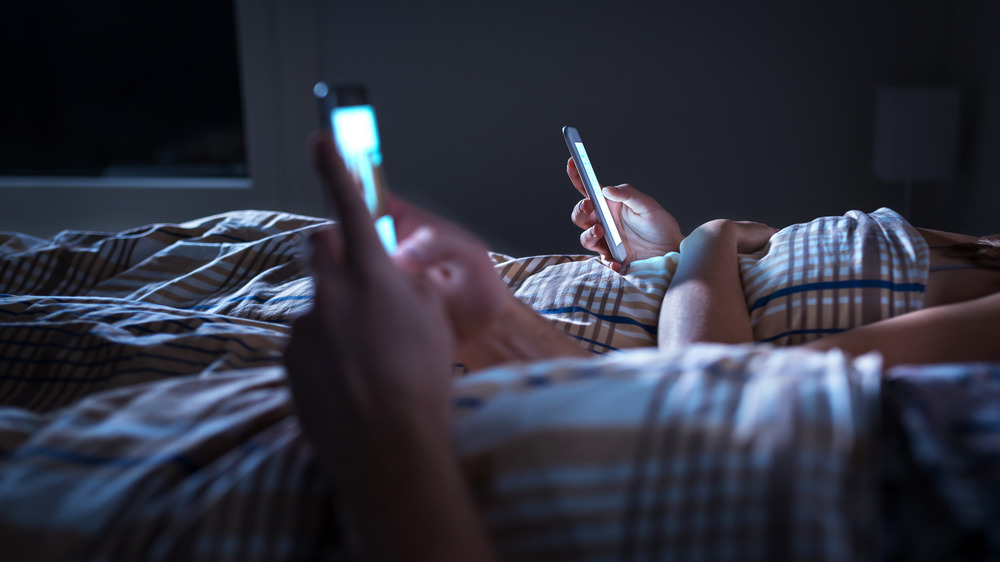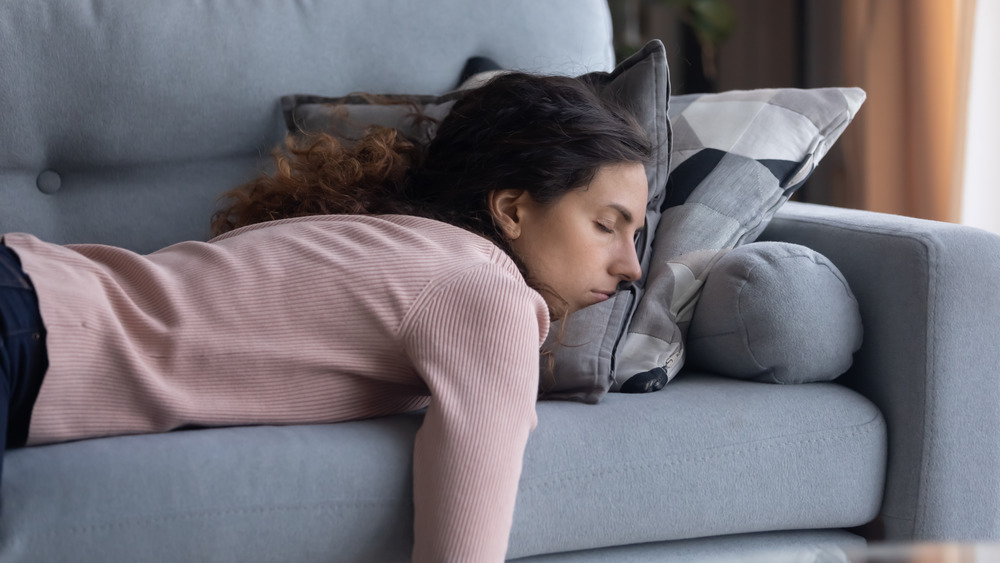This Might Explain Why You're Always Tired
We may receive a commission on purchases made from links.
If you're constantly feeling tired, you may be brainstorming ways to tack on extra hours of sleep. After all, it makes sense that if you're sleepy, you're likely sleep-deprived, right? Yes, but not in the way you might think. Poor sleep quality will leave you feeling exhausted even when you're clocking plenty of time in bed.
Dr. Greg Hammer, M.D., a physician and professor at Stanford University Medical Center, discusses sleep quality and several other factors leading to burnout in his best-selling book, GAIN without Pain: The Happiness Handbook for Health Care Professionals. Hammer asserts that "there are several factors that may be responsible for degrading the restorative quality of your sleep." For example, it's possible that you may have untreated or undiagnosed sleep apnea — a condition that partially blocks your airway when sleeping. Sleep apnea can cause multiple nighttime wakings, leaving you drowsy all day (via Mayo Clinic).
What you eat, drink, and watch may be affecting your sleep
Dr. Hammer also warns that people should be careful of the food and drinks they consume, as many substances have a negative impact on sleep quality. If you're tossing and turning at night, your evening nightcap may be to blame. Hammer explains that "alcoholic beverages taken within an hour or two of bedtime can significantly disrupt sleep. While the alcohol may make it easier to doze off, it can cause fitful sleep." Some medications, like SSRI-class antidepressants, blood pressure treatments, steroids, and contraceptives, can also interfere with getting a good night's rest (via WebMD).
If you can't live without your daily cup of coffee, make sure to have it first thing in the morning. Dr. Hammer reminds coffee-lovers that "caffeine has a long half-life, meaning that its effects can last 6 to 8 hours, so your afternoon or evening cup of coffee can impair sleep at night." Other caffeine-containing substances, like teas and chocolate, should also be saved for earlier in the day when they won't leave you restless.
Putting limits on screen time isn't easy, but the light from these devices inhibits the production of melatonin, keeping you alert and awake even when you're physically tired (via Sleep.org). Hammer suggests practicing good sleep hygiene by removing "all screens, including TV screens...from the bedroom." Keeping the bedroom slightly cool (around 65 to 70 degrees) also helps to promote peaceful sleep.
Set up your day for a better night's sleep
Restful days lead to more restful nights. Hammer reflects that "stress, which so many of us are experiencing these days due to COVID and other profound national and international events, causes a state of emotional and physical fatigue even if you are getting enough sleep." And stress can also put pressure on other areas of the body.
"Stress causes an increase in adrenaline and cortisol in the body, which causes a stress on the heart and immune system and generally imposes a condition akin to aging." Not to mention, the issues that can arise in your diet and exercise habits as well. "When people are tired from stress-related loss of sleep, they reach for sugary and comfort foods, both of which have little nutritional value and can be quite harmful. People also tend to exercise less when they are fatigued."
You can set yourself up to get the best night's sleep possible with healthy habits. People that exercise, restrict caffeine and sugar, and are mindful of managing their stress levels tend to sleep better at night.
Dr. Hammer concludes that "fatigue is certainly a complicated subject, but it is safe to say that, whether in terms of quantity or quality or both, sleep deprivation has many adverse effects on our bodies."
Remember, there are a variety of chronic and acute conditions that may be impacting your sleep quality, too. If you find that you've done everything you can and you're still fatigued, it may be time to check with a physician to rule out a more serious, underlying condition.



